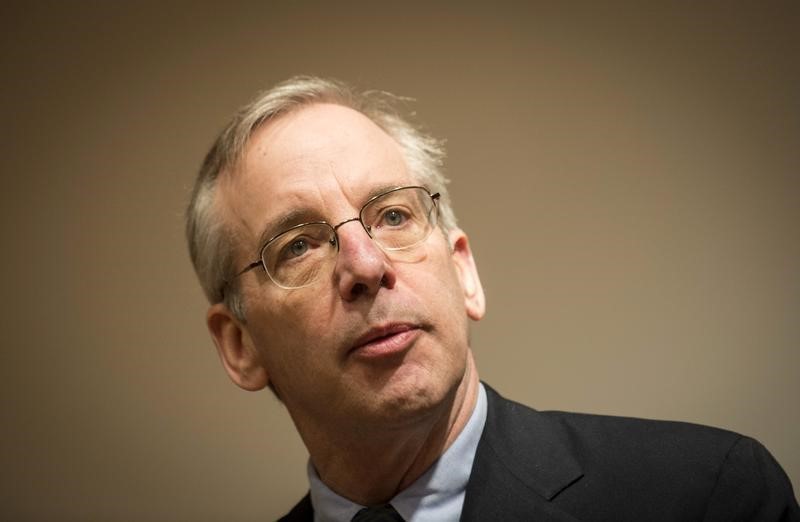By Jonathan Spicer
NEWARK, N.J. (Reuters) - The timing of the Federal Reserve's interest rate hike, which would be its first in nearly a decade, is unclear and for now policymakers must watch that the U.S. economy's surprising recent weakness does not signal a more substantial slowdown, a top Fed official said on Monday.
New York Fed President William Dudley's comments were the latest sign that a string of disappointing economic data, including a sharp drop in jobs growth last month, is derailing a Fed plan to tighten monetary policy around mid-year after more than six years of rock-bottom rates.
In relatively dovish remarks to a business audience in Newark, New Jersey, Dudley did not repeat his refrain that a rate hike could reasonably be expected to come by mid-2015.
He said the weak March jobs report, as well as softer than expected manufacturing and retail sales data in recent months, likely reflected "temporary factors to a significant degree," including the harsh winter in much of the United States.
But, he added, the U.S. central bank will need to "determine whether the softness in the March labor market report ... foreshadows a more substantial slowing in the labor market than I currently anticipate."
The job market had been a lone bright spot in the world's largest economy. But it has ebbed and then slowed sharply last month, reinforcing the notion the Fed would delay an initial rate hike until later in 2015 or even 2016. (Graphic: http://graphics.thomsonreuters.com/15/fedfunddots/index.html)
Stocks rose on Monday and the dollar dipped, with some investors pointing to Dudley's more cautious tone.
A permanent voting member of the Fed's policy panel and a close ally of Fed Chair Janet Yellen, Dudley repeated that the rate hike would come once the labor market improves more and when policymakers are reasonably confident that low inflation will return to a 2 percent goal.
"The timing of normalization will be data dependent and remains uncertain because the future evolution of the economy cannot be fully anticipated," he said, adding he expects the path of rate hikes to be "relatively shallow."
Dudley pointed to cheap oil and the strong dollar as key risks to an economy that he expects to grow at a more than 2 percent pace this year, with unemployment falling to close to 5 percent from 5.5 percent now, and wages rising.
Low oil prices and the drop in domestic drilling will exert a "meaningful drag" on U.S. economic activity, he said. The strong dollar will continue to hurt U.S. trade performance, and has already shaved an estimated 0.6 percentage point from overall 2015 growth, he added.
Longer term, he said the Fed's key policy rate will probably rise to only about 3.5 percent, lower than previously thought.
Dudley has been under political pressure for perceived regulatory missteps by his New York Fed, with lawmakers and even one former Fed official floating changes. But Dudley defended the status quo on Monday, saying his Fed bank should continue to play a key role in monetary policy during periods of stress.
